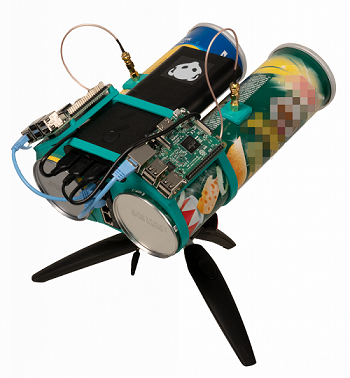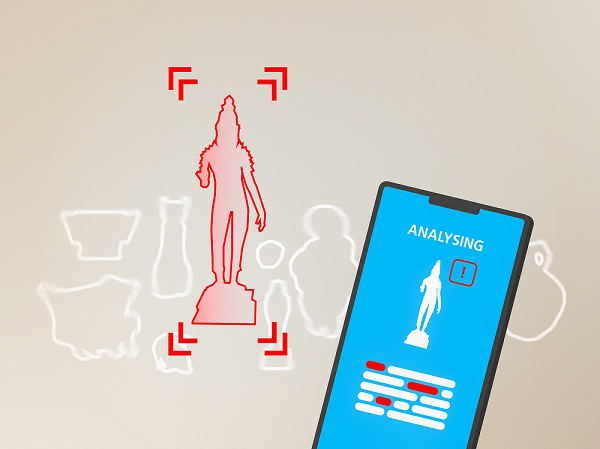13.07.2021
Celebrating the winners of the first Fraunhofer CyberStar Award
The winners of the first Fraunhofer CyberStar Award (FCSA) were announced today: They are Eyal Ronen, Ph.D., from the Tel Aviv University and Anatoly Shusterman from the Ben-Gurion University. The Fraunhofer CyberStar Award promotes excellent graduates in applied cybersecurity and their thesis. The award ceremony took place as part of the first German-Israeli Cyber Conference and was held online. It was supported by high-level speakers from both Israel and Germany such as Yigal Unna, Director General of the Israel National Cyber Directorate, Arne Schönbohm, the President of Germany’s Federal Office of Information Security, and other well-known cybersecurity experts. The conference was opened by Susanne Wasum-Rainer, the German Ambassador in Tel Aviv, and Jeremy Nissim Issacharoff, the Israeli Ambassador in Berlin. The conference was chaired by Haya Shulman.

29.06.2021
Fraunhofer researchers hack Bluetooth locks from Tapplock
A homemade directional antenna made of potato chip cans and two commercially available mini-computers are enough to hack Bluetooth locks made by the US manufacturer Tapplock in seconds, as proven by researchers at the Fraunhofer Institute for Secure Information Technology SIT in Darmstadt. The manufacturer was informed about the vulnerabilities and has since fixed them in one of its models.

18.06.2021
ESORICS – this year with exclusive run-up tutorials
This year's ESORICS – European Symposium on Research in Computer Security – will be held virtually. For the first time it will start with monthly tutorials in advance. The first two tutorials will be free of charge. The tutorial series will start at the end of June with cybersecurity expert Dr. Yossi Oren from Ben-Gurion University in Israel. More information and registration: https://esorics2021.athene-center.de/

12.02.2021
Fraunhofer researcher wins German IT Security Award
Dr. Haya Shulman wins first place in the 8th German IT Security Award, securing prize money of 100,000 euros. The prize is awarded by the Horst Görtz Foundation and is considered the most prestigious and highest endowed prize for IT security in Germany.
05.11.2020
AI helps to detect illegal cultural assets
A key challenge in combating the illegal trade in stolen cultural goods is that illegally traded objects are difficult to identify. The KIKu project – a German acronym for Artificial Intelligence for Cultural Property Protection – aims to facilitate the work of the responsible authorities, especially customs and police, and is funded by the Federal Government Commissioner for Culture and the Media. To this end, the Fraunhofer Institute for Secure Information Technology SIT and cosee GmbH are developing an app that can use artificial intelligence to provide automated information on whether, for example, an antique vase or statue could have come from a looted dig or was otherwise illegally acquired. The project was presented on November 4th, 2020 to numerous relevant actors in the field of cultural property protection from Germany and the EU, who met at the invitation of the Minister of State for Culture Monika Grütters for the 7th EU CULTNET meeting in the context of the German EU Council Presidency.

17.07.2020
Conference radar for cybersecurity
Starting immediately, the National Research Center for Applied Cybersecurity ATHENE offers a wide-ranging overview of the most important scientific conferences in the fields of cybersecurity and data protection at https://www.athene-center.de/cfp. Currently, the list includes more than 100 events and it can be filtered by event dates and submission deadlines. Additional filtering options allow for quickly finding suitable publication opportunities of various research topics, while taking into account the scientific reputation of each event listed.

26.06.2020
Color barcode becomes ISO standard
JAB-Code, the color barcode of the Fraunhofer Institute for Secure Information Technology SIT, is on the way to becoming an international ISO standard. JAB-Code – Just Another Barcode – is to be brought to a full ISO standard by 2022. The globally uniform rules for data formats and their use in practice provide both device manufacturers and user companies with planning security for innovative developments – an important prerequisite for the successful dissemination of JAB-Code in industry. The advantage of the color code compared to the common black and white barcodes is that it can store much more data in the same space. Besides securing job certificates, training certificates and last wills, JAB-Code can also provide proof of authenticity for products. JAB-Code is not subject to licensing. It is open source and ready to be put into practice. To test the color barcode, go to www.jabcode.org.

24.10.2019
New code scanner finds software vulnerabilities without source code
Errors and vulnerabilities in software cause damage running into billions, can ruin a company's reputation and, in the worst case, endanger the safety of people. That's why the Fraunhofer Institute for Secure Information Technology SIT in Darmstadt developed VUSC – the code scanner. VUSC (for VUlnerability SCanner) helps companies and developers to detect vulnerabilities in code within minutes. VUSC does not require any source code for this. The code scanner works on premises in a data protection-friendly manner.

07.10.2019
Fraunhofer SIT Finds Serious Security Flaws in TwitterKit for iOS
The Fraunhofer Institute for Secure Information Technology SIT in Darmstadt has discovered serious flaws in the TwitterKit for iOS 3.4.2 that can result in account abuse and data loss. The TwitterKit is an end-of-life software library that is no longer updated but is still used in apps. The Fraunhofer researchers urge app developers to stop using the TwitterKit for iOS app developments and to replace it in existing apps. Technical details about the vulnerability can be found here: www.sit.fraunhofer.de/cve.

14.08.2019
Danger over the phone
Hackers can access sensitive data and services also via telephone devices: Most companies use VoIP telephones that are integrated into the company network. Security researchers at the Fraunhofer Institute for Secure Information Technology have found a total of 40 partly serious vulnerabilities in these VoIP telephones. Attackers can misuse these gaps to intercept calls, deactivate the telephone or gain further access to the company network via weak points in the device. The VoIP telephones producers have by now closed these vulnerabilities. Users are strongly recommended to install the appropriate updates of the device’s firmware. Further technical details on the vulnerabilities can be found at www.sit.fraunhofer.de/cve . The researchers presented the results of their investigations at DEFCON, one of the world’s largest hacker conferences.
